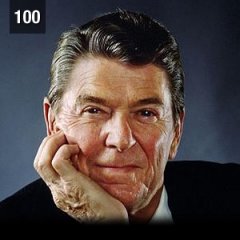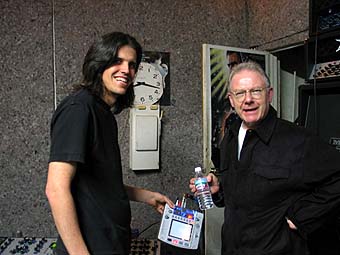-
Posts
7099 -
Joined
-
Last visited
Everything posted by Peter_Puget
-
I would guess that Alex made an honest mistake and now feels a bit silly. Certainly he wasn’t out for the prize money and he wasn’t trying to steal the creative credit for the film. Are you suggesting something underhanded or mean spirited was involved? I do think that their modified release is lame.
-
Festival Media Releases: From Google Cache: Forgotten Polish film takes Grand Prize at Banff Mountain Film Festival A film made 35 years ago at a Polish film school has taken the Grand Prize at this year’s Banff Mountain Film Festival. Odwrót (Retreat) recreates an anonymous climber’s epic solo descent in the wake of a mountaineering accident. Produced in 1967 by director Jerzy Surdel at the Lódz Film School in Poland, and filmed in black and white in the Tatra Mountains, Odwrót follows the climber’s desperate retreat to find help for his injured partner. “Impeccable directing and editing create a film of poetic ambiguity,” says film festival jury member Liam Lacey. Fellow jury member Mike Libecki describes Odwrót as “timeless and irreproducible.” The sole copy of Odwrót was rescued from obscurity by Seattle architect Alex Bertulis. Over the past year and a half, he spent $10,000 to restore the film. “This film deserves to be recognized as a classic, and as an inspiration to young filmmakers of what can be accomplished when you have a powerful story, even on a limited budget,” says Bertulis. The Grand Prize award is co-sponsored by Mountain Equipment Co-op and Suunto. REVISED November 30, 2004 Forgotten Polish film takes Grand Prize at Banff Mountain Film Festival A film made 36 years ago at a Polish film school has taken the Grand Prize at this year’s Banff Mountain Film Festival. Odwrót (Retreat) recreates an anonymous climber’s epic solo descent in the wake of a mountaineering accident. Produced in 1968 by director Jerzy Surdel at the National College of Theatre and Film in Lódz, Poland, and filmed in black and white in the Tatra Mountains, Odwrót follows the climber’s desperate retreat to find help for his injured partner. “Impeccable directing and editing create a film of poetic ambiguity,” says film festival jury member Liam Lacey. Fellow jury member Mike Libecki describes Odwrót as “timeless and irreproducible.” The Grand Prize award is co-sponsored by Mountain Equipment Co-op and Suunto.
-
Didn't read this but thought someone might like it cool link
-
I guess I am twisted!
-
LOL I became lost the first time I tried to find it too. The high star count lured me into trying again. Sadly the climb is pretty much average in quality.
-
There's a bolt on the last pitch of Sunblessed? I do not remember that. Where is it? I remember a beat of fixed bong that was not really needed but that was the only fixed piece I remember.
-
hmmmm...... ...full in approx. 7 months....
-
CONFRONTATION WITH IRAN LOOMS The President has stated that Iran will not be allowed to possess nuclear weapons. He can be taken at his word. The current diplomatic agreement between Iran and several nations of the EU has no verification mechanism, and will not satisfy the President that Iran has ceased its nuclear weapons program. Having seen the ill effects of a failed diplomatic solution to the North Korean nuclear program, the President will be short on patience for similar negotiated disarmament schemes that miss the mark of full and unconditional disclosure, like that of Libya. Iran will not submit to such disclosure. However the current cabinet shakeup plays out, the Bush Administration will view Iran as a greater threat to US security than Syria. While Syria provides geographic territory, logistical support, and moral support to various terrorist groups, these groups, Hamas and Hezbollah, mainly target Israel and not the United States. While Syria may be the repository of whatever Iraqi weapons were stashed away prior to the invasion, Syria has no nuclear weapons development program. The President and Vice President have clearly stated that the over-riding reason for the invasion of Iraq was the threat to the United States of the "nexus between weapons of mass destruction and terrorist groups." This nexus clearly resides in Iran, which is actively seeking nuclear weapons and has a long history of supporting all manner of terrorist groups, including, from time to time, Al Qaeda. THE TIMING OF US ACTION Before assumptions about the use of US force can be definitively stated, the critical question becomes the time horizon. What to make of this? How to define in time, the event that creates the deadline? Iran will eventually reach a point wherein it has completed the infrastructure and research necessary to manufacture a nuclear weapon. This is the point it must not be allowed to reach. The Atlantic article gives the Iranians 3 years, with many backside-covering qualifications. A recent US News report states three to seven years. Other reports, state as little as 4-6 months before Iran has the break-out stage and can "construct nuclear bombs whenever it wishes." As we all know from the re-election campaign, President Bush was criticized as "rushing to war" in Iraq. Agreeing with the characterization of this decision (that it was poor form to move so quickly) or not is irrelevant. Instead, assume that Bush prefers to err on the side of action, and move quickly. In this case, let us assume the time horizon for his decision is 12-18 months. In the next year and a half, the US, whether alone or with allies, must address the Iranian nuclear program once and for all, or grudgingly admit Iran into the fraternity of nuclear powers, and like it or not, live with its regime for an indefinite period of time.
-
Adam Jones (Tool) BTW - The old man was planning on joining in on the cancelled TU show at the Croc.
-
I'll settle this dispute: Amrita Arora
-
IIRC when I climbed Sunblessed there were not 3 bolts in the first 30 feet, soI am guessing the chopped bolts are new. I remember the climbing not being very hard but since the route follows a dike thinking that I would not be surprised if a hold broke on someone sometime. The next pitch also seemed a bit over rated but the 4th was quite a bit harder. I remember wanting a bigger piece than I had near the bottom of it and finding the top (crux) a bit wet. I climbed it in February and the rest of the route was bone dry.
-
Why E-Rock voted Bush/Cheney
-
Here's one for you E-Rock - Link that won't last very long
-
With respect to current activities in Fallujah let's check in w/ Mao who of course is no stranger to fighting a variety of guerrilla campaigns:
-
Once I was interviewing with a small CPA firm and after a friendly chat I was being shown around the office and asked if I found pornography offensive. I said “no not really” and was told good because “one of our largest clients” was a producer of pornography. This was before the age of video and the internet. We walked a few doors down and he opened a door showing me a room full of porno mags! A couple days later there was a message on my answering machine. I never responded.
-
You wimps why not ask the "resistance" directly! Avoid the middle-man. The Baath party Line.
-
Bah! OW you should know everything is weak before the awesome power of the Integratron!
-
J_B and Jim have their opportunity.... link
-
It was pretty damp - you have to pick the right places to climb



